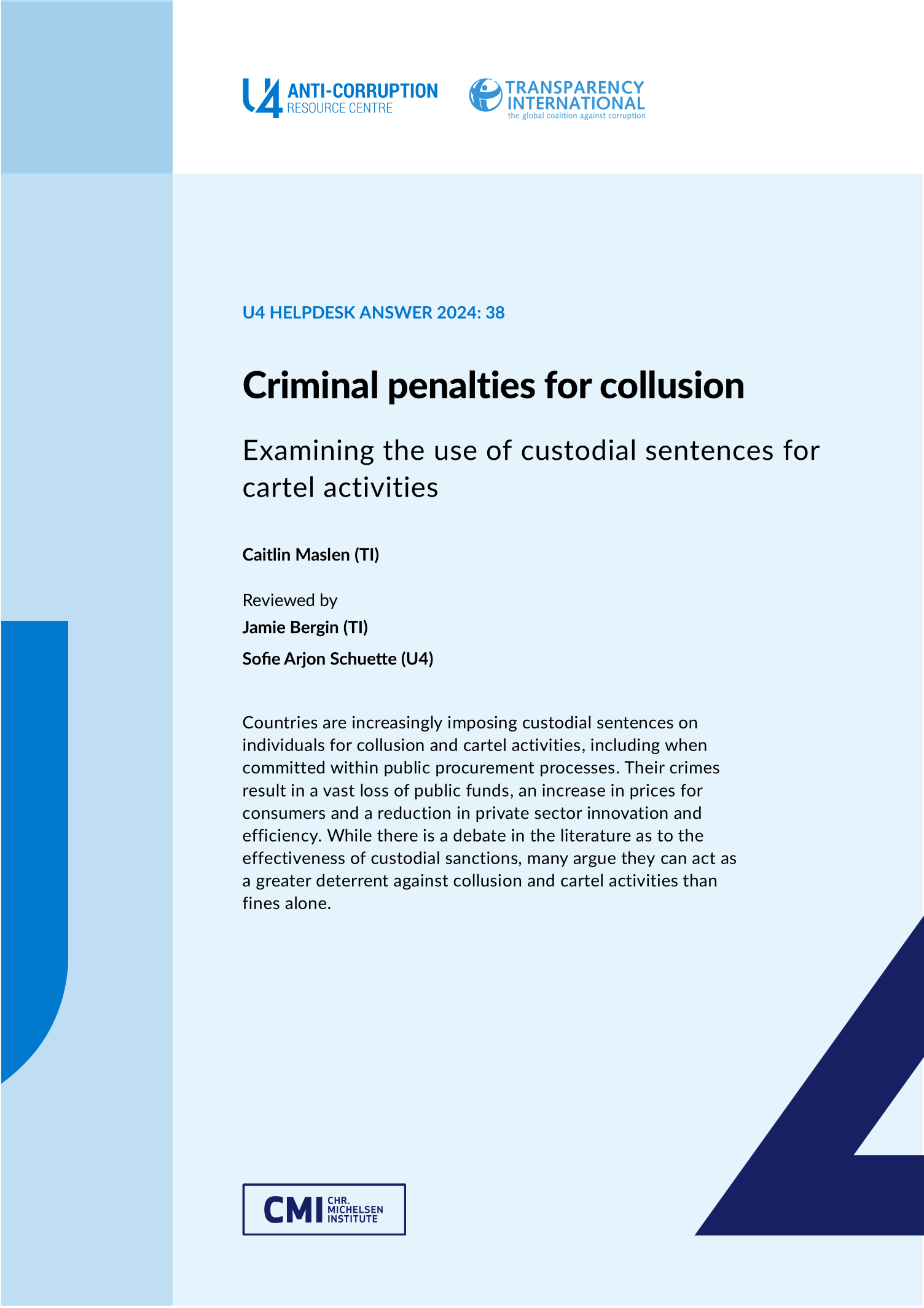Main points
- Effectively sanctioning collusion can help foster healthy market competition and ensure greater integrity in public procurement.
- Fines remain the most commonly used criminal sanction against individuals convicted of collusion; however, many countries have started to adopt custodial sentences, particularly in the US and EU.
- The primary argument for custodial sentences for individuals convicted of collusion is to deter future crimes through a harsher punishment than fines, which may be absorbed by the companies the individuals worked for.
- The literature provides three main theories in support of custodial sentences: retribution, public reassurance and deterrence. However, some evidence raises doubts on whether custodial sentences do act as an effective deterrent for future crimes.



